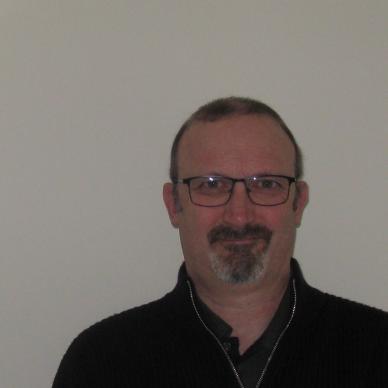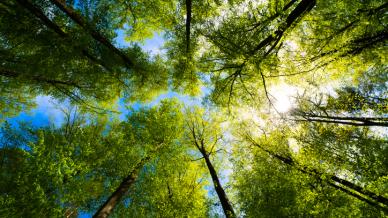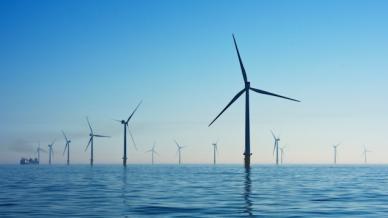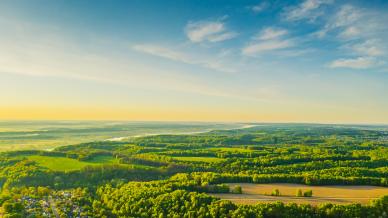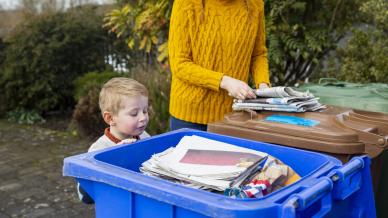A recent survey report and media coverage this year shows that those living in the UK have a poor insight of the words, language and policies used when environmental subjects are discussed.
The survey (The Language of Sustainability ) by Trajectory, an insights company and Fleet Street, a communications agency, identified that only a quarter of the people surveyed could describe what “sustainable” meant, and a quarter understood what we mean by using the term “green.”
The survey also showed that business terms such as “environmentally friendly” were not fully understood by those that used them. They also identified that half of those who were questioned could not define “single use plastics". The report highlighted that those with higher levels of education had greater confidence in their understanding of key terms.
Generally, it can be said that the concern for the climate and the result of its change, is rising. UK Environmental Policy and Business Environmental Strategies should ensure that the language used is clear to help show a wider understanding of the current and future environmental issues and the solutions that would deal with them. Adult environmental education can help remedy this poor understanding of what is happening to the world’s environment.
What is adult environmental education?
Adult environmental education is a field of study that combines an environmental preference with a learning model to provide a vigorous educational attitude to environmental issues. Its primary objective is to help educate people to gain sustainable lives within their respective neighbourhoods and lifestyles. Overall, adult education can help change lives and transform societies.
Climate change and other environmental challenges continue to pose threats to (and not only) the UK’s future, and it necessitates a much more sustainable economy, society, and lifestyle. Therefore, environmental adult education is essential to equip individuals with the skills and attitudes needed to care for themselves, for each other, for society, the environment, and the planet. It empowers learners to engage actively in all aspects of sustainability.
What incentives are there other than to understand how the current climate emergency can affect your family and what can you do to reduce your carbon footprint which affects it? Higher education is not the “be all and end all” when dealing with environmental matters. What is significant is the individual skills of a person. Adult environmental education has just as much potential as any other types of education and enables people to surpass the obstacles and be given the opportunity to have a better understanding of, or build a brighter career for themselves, when dealing with environmental and sustainability issues.
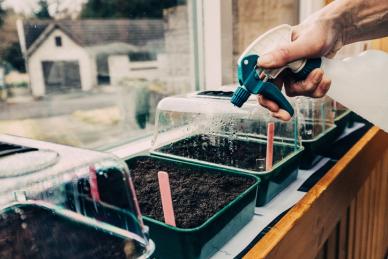
Why you should consider taking an Adult Environmental Education Course
Children’s environmental education is placed at the centre of vocational education and has them developing a broad knowledge and understanding of the importance of nature, sustainability, the reasons, and influences of climate change and to be able to interpret this knowledge into constructive action and resolutions.
Undergraduates, postgraduates, and research has built upon this environmental knowledge and provided future processes, programs, policy initiatives that address the main challenges related to climate change, ecosystem restoration and conservation processes, new patterns of production and consumption, as well as adaptation to sustainable lifestyles.
Those who find themselves not in education employment or training, or those whose jobs do not involve consideration of a sustainable environment, may not have a full understanding of the effects of our everyday lives on the natural world. They may not also recognise why we need to meet several environmental standards and protocols and see them as a hindrance to their way of work/way of life ( the number of recycle bins, and the governments net zero strategy are examples of this). They also may need to have some knowledge to help with the “children’s homework conundrum” on the subject.
Understanding the climate breakdown that is occurring and what we need to do at the local and global level is another reason for adult environmental education. This emergency is not going away, and we all need to take our part in identifying the issues with climate breakdown and how to reduce their results and effects on our way of life.
The importance of sustainable development in adult education cannot be played down, it often finds itself overshadowed by the vocational education and training field, which primarily focuses on professional development. This has resulted in a significant gap, particularly when it comes to opportunities that nurture environmental awareness. The need for environmental adult education is apparent now more than ever.
Why do we need adult environmental education?
This is more than just gaining knowledge of the environment. It is about increasing the understanding and awareness of local and global environmental issues. It shows individuals how to think significantly about what is going on and improves problem-solving and decision-making skills. Gaining access to environmental education for adults will help them prepare to face the effects of climate change at length from a responsible UK residents’ point of view, holistically defending the natural world and being consistent with these values.
Adult environmental education presents learners with appropriate skills, knowledge, behaviours, and attitudes to cope with a rapidly changing world and climate and promotes both personal and systemic transformation towards more sustainable lifestyles. They can then understand or perhaps contribute to all aspects of climate breakdown policymaking, mitigation, and adaptation. As a result, it will enable the family to create and implement environmental solutions that generate more sustainable lifestyles and strengthen resilience to climate change. It could also save them money when dealing with energy, waste, and food sustainability.
What is going on at WEA to support this?
WEA in its Green Curriculum aims to educate, inspire, and empower individuals and communities to act towards a more sustainable future. They look at the sciences behind climate change, how to deal with green issues, permaculture, and the more organic subjects regarding the environment. Under the Humanities and Science category in Nature, Ecology & Permaculture, WEA are delivering several courses.
- Green Solutions
- Introduction to Environmental Sustainability
- Permaculture Design Certificate
- A Guide to Better Greener Living
- Introduction to Green Issues
- Understanding the Climate Emergency
- Protecting the Natural and Built Environment
- The Eco-Conscious Personal Transformation
If you are more skilled, there are also several craft courses for upcycling and sustainable sewing.
There will also be the WEA Northeast Green Conference in Mar 24.
Click the button below to see our green courses and book your spot today.

